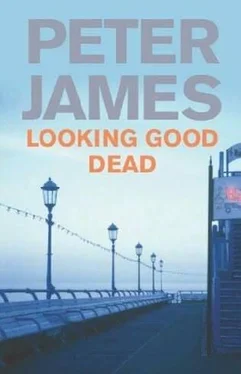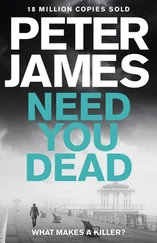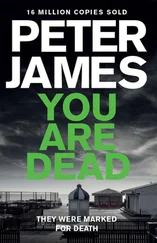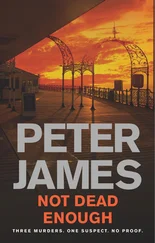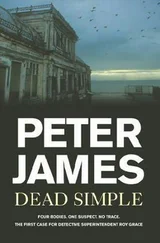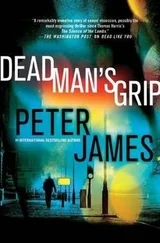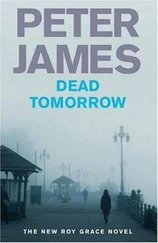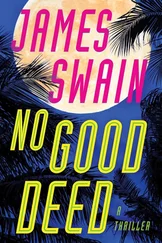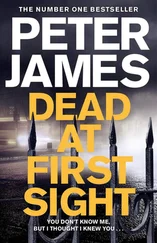‘Morning, Marlon!’ he said breezily. ‘Having your morning swim? Are you hungry?’
Marlon’s mouth opened and closed a couple of times. He wasn’t much of a conversationalist.
He filled the kettle, pulled up a chair and sat down at the kitchen table, looking around, wondering what signs of Sandy were in this room. Almost everything, except for the silver fridge, was red or had a red motif. The oven and the dishwasher were red, the handles on the white units, the hob, the doorknobs, were all red. Even the kitchen table was red and white. All Sandy’s choice. It had been the fashionable colour at the time, but it all looked a little tired now; the ceramic surfaces were badly chipped. Some of the unit hinges had sagged. The paintwork was scratched and grimy.
The truth was, he knew, he would be better off in a flat. They rattled around in this place – himself, Marlon and Sandy’s ghost.
He opened the cupboard door beneath the kitchen sink, ducked down, found a roll of black bin liners and tore one off. Then he picked up a photograph of himself and Sandy from a shelf and stared at it for a moment. It had been taken by a stranger, with Grace’s camera, on their honeymoon. Right at the top of Mount Vesuvius. Sandy and he stood, looking sweaty from the exertion of the hard climb, both wearing T-shirts, against the backdrop of the crater partially masked by low grey cloud.
He placed the photograph in the bin liner, then stood still as if waiting to be struck dead by a thunderbolt.
But nothing happened.
Except a whole load of guilt crept up through him. What if it went really well tonight and he ended up bringing Cleo Morey back here after their dinner date?
He realized he needed to remove anything that was obviously Sandy’s. And that was a huge milestone for him. A mountain.
But maybe it was time?
Then, having second thoughts, he took the photograph out of the bin liner and put it back on the shelf. It would look odd if he did not have photographs. It was her personal things he needed to reduce around the house.
Up in the bedroom, he looked at her hairbrush. There were still strands of her long, fair hair in the bristles. He pulled one out, held it up, his heart leaden suddenly. He let the strand drop and watched it float to the carpet, feeling a lump in his throat. Then he brought the brush to his nose and sniffed, but there was no scent of Sandy remaining on it, just a flat, dry smell.
He put the brush into the bin liner, and all the rest of her belongings from the dressing table and then from the bathroom. He carried the bag into the spare room used for storing junk, and placed it next to an empty suitcase, the box that his laptop had originally come in and several old rolls of Christmas wrapping paper.
Then he got changed into his shorts, singlet and trainers, folded a five-pound note into his pocket, and set off for his run.
His route took him straight down to the Kingsway, a wide dual carriageway running along Hove seafront. On one side were houses that would give way in half a mile or so to continuous mansion blocks and hotels – some modern, some Victorian, some Regency – that continued the full length of the seafront. Opposite were two small boating lagoons and a playground, lawns and then the promenade with stretches of beach huts, and the pebble beaches beyond, and just over a mile to the east, the wreck of the old West Pier.
It was almost deserted and he felt as if he had the whole city to himself. He loved being out this early on a weekend, as if he had stolen a march on the world. The tide was out, and he could see the orb of the rising sun already well up in the sky. A man walked, far out on the mudflats, swinging a metal detector. A container ship, barely more defined than a smudge, sat out on the horizon, looking motionless.
A sweeper truck moved slowly towards Grace, engine roaring, its brushes swirling, scooping up the usual detritus of a Friday night, the discarded fast-food cartons, Coke cans, cigarette butts, the occasional needle.
Grace stopped in the middle of the promenade, a short distance from a wino curled up asleep on a bench, and did his stretches, breathing deeply that familiar seafront smell he loved so much – the salty tang of the fresh, mild air, richly laced with rust and tar, old rope and putrid fish – that Brighton’s elder generation of seaside landladies liked referring to in their brochures as ozone.
Then he began his six-mile run, to the start of the Marina and back again. For the final mile, he always turned inland, running up to the busy shopping thoroughfare of Church Road, Hove, to an open-all-hours grocery store, to pick up some milk and a newspaper, and maybe a magazine that took his fancy. Maybe this morning he would buy another style magazine. Something like Arena. Get some more ideas about what to wear tonight.
He stopped outside the shop door, partly refreshed by his run and partly exhausted from his lack of sleep, perspiring heavily. He did his stretches, then entered the store and walked over to the newspaper and magazine section. And instantly saw the headlines of the morning edition of the Argus.
Beetle Riddle in Brighton Law Student Murder
Seething with anger, he grabbed a copy of the paper from the stand. There was the photograph of Janie Stretton he had released yesterday. Inset below it was a small photograph of a scarab beetle.
Sussex CID are refusing to say whether a rare scarab beetle, not native to the British Isles, might hold a vital clue to Janie Stretton’s killer. When asked to confirm the discovery of the beetle during the post-mortem examination by Home Office Pathologist Dr Frazer Theobald, Senior Investigating Officer Detective Superintendent Roy Grace of Brighton and Hove CID was not available for comment…
Grace stared at the words, his fury growing by the minute. Not available for comment ? No one had bloody asked him to comment. And he had given strictest instructions that the press were not to be told about the discovery of the beetle.
So who the hell had leaked it?
A few minutes before eight thirty, having showered, grabbed a quick bowl of cereal and, although it was Saturday, thrown on a dark suit, white shirt and plain tie – not knowing what the day would bring and who he might have to meet – Grace arrived at MIR One in the Major Incident Suite in a filthy mood, ready to skin someone alive.
His whole team was already there, waiting for him – and by the looks on their faces, all of them had seen the Argus headline too.
Just in case they hadn’t, he thumped the paper down on the workstation. By way of a greeting he said, ‘OK, who the fuck is responsible for this?’
Glenn Branson, Nick Nicholl, Bella Moy, Emma-Jane Boutwood, Norman Potting and the rest of the team all stared back at him blank-faced.
Grace fixed his accusatory gaze on Norman Potting as his first port of call. ‘Any thoughts, Norman?’ he said.
‘The writer on the piece is that young journo, Kevin Spinella,’ Potting rumbled in his deep rural voice. ‘That bugger’s always trouble, isn’t he?’
Grace suddenly realized that in his anger he had neglected to look at the byline. It was because he was tired; he did not have his brain fully in gear after his sleepless night. A long run normally charged him up, but at this moment he felt drained and badly in need of a strong coffee. And the smell of the stuff was rising tantalizingly from several cups on the desk.
Kevin Spinella was a recent recruit to the paper, a young, sharp-voiced rookie crime reporter, fast carving a reputation for himself at the expense of the Sussex Police. Grace had had a previous run-in with this journalist, as had most of his colleagues.
Читать дальше
